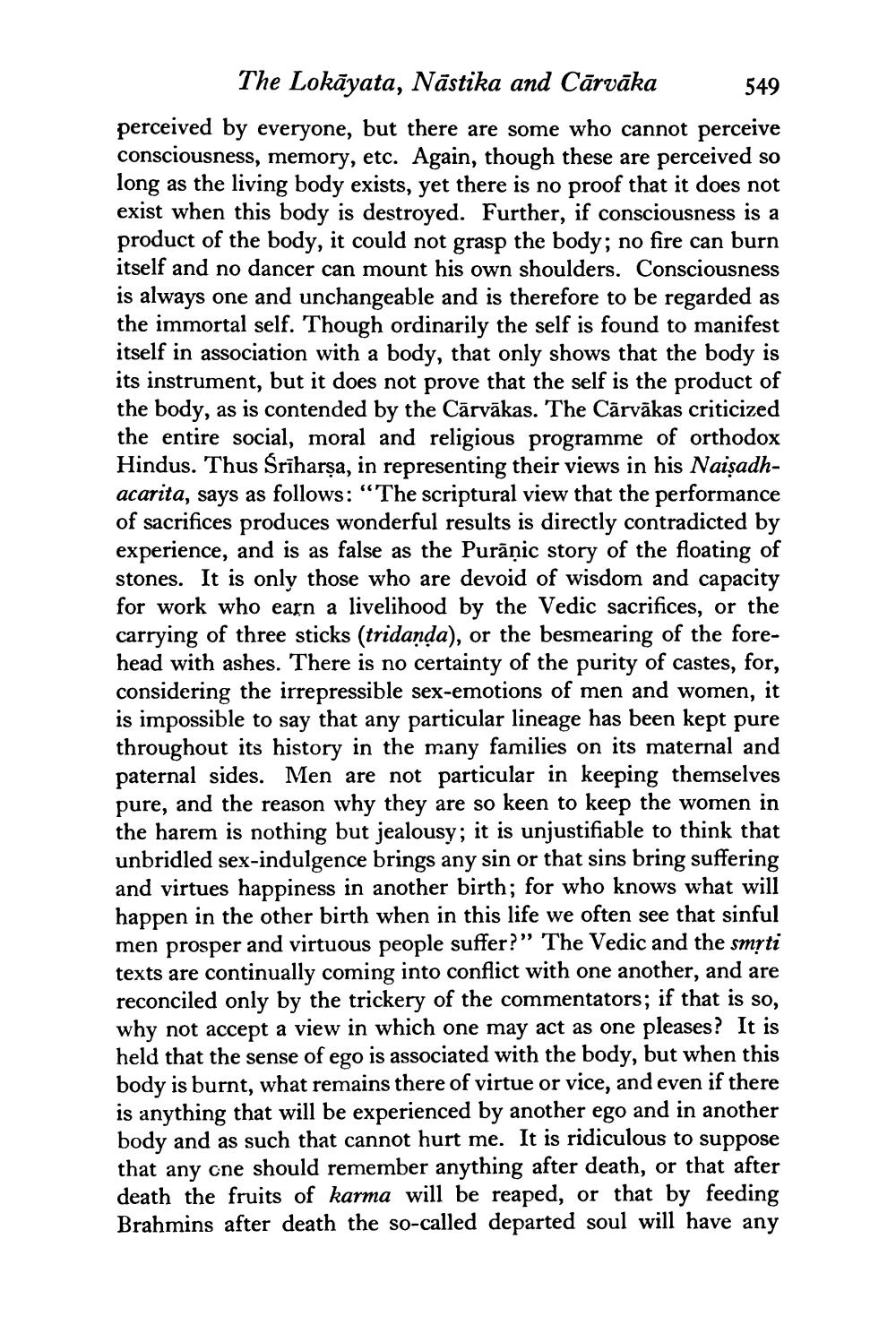________________
The Lokayata, Nāstika and Cārvāka
549
perceived by everyone, but there are some who cannot perceive consciousness, memory, etc. Again, though these are perceived so long as the living body exists, yet there is no proof that it does not exist when this body is destroyed. Further, if consciousness is a product of the body, it could not grasp the body; no fire can burn itself and no dancer can mount his own shoulders. Consciousness is always one and unchangeable and is therefore to be regarded as the immortal self. Though ordinarily the self is found to manifest itself in association with a body, that only shows that the body is its instrument, but it does not prove that the self is the product of the body, as is contended by the Cārvākas. The Carvākas criticized the entire social, moral and religious programme of orthodox Hindus. Thus Śrīharṣa, in representing their views in his Naiṣadhacarita, says as follows: "The scriptural view that the performance of sacrifices produces wonderful results is directly contradicted by experience, and is as false as the Puranic story of the floating of stones. It is only those who are devoid of wisdom and capacity for work who earn a livelihood by the Vedic sacrifices, or the carrying of three sticks (tridaṇḍa), or the besmearing of the forehead with ashes. There is no certainty of the purity of castes, for, considering the irrepressible sex-emotions of men and women, it is impossible to say that any particular lineage has been kept pure throughout its history in the many families on its maternal and paternal sides. Men are not particular in keeping themselves pure, and the reason why they are so keen to keep the women in the harem is nothing but jealousy; it is unjustifiable to think that unbridled sex-indulgence brings any sin or that sins bring suffering and virtues happiness in another birth; for who knows what will happen in the other birth when in this life we often see that sinful men prosper and virtuous people suffer?" The Vedic and the smrti texts are continually coming into conflict with one another, and are reconciled only by the trickery of the commentators; if that is so, why not accept a view in which one may act as one pleases? It is held that the sense of ego is associated with the body, but when this body is burnt, what remains there of virtue or vice, and even if there is anything that will be experienced by another ego and in another body and as such that cannot hurt me. It is ridiculous to suppose that any one should remember anything after death, or that after death the fruits of karma will be reaped, or that by feeding Brahmins after death the so-called departed soul will have any




